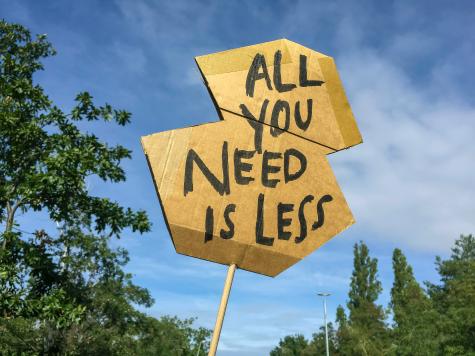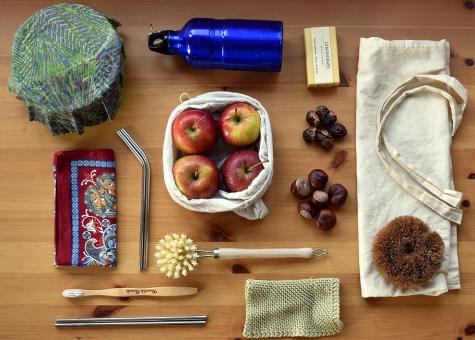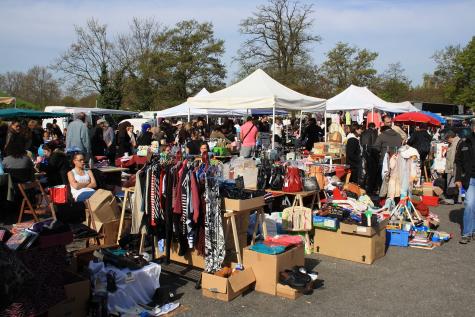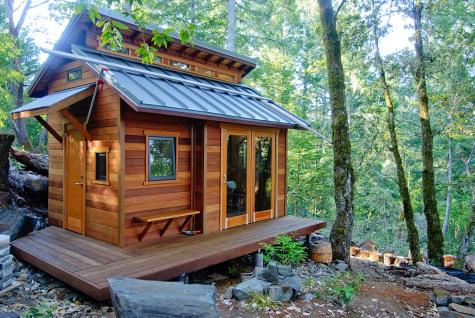Alternative Lifestyle

Alternative Lifestyles & Sustainable Living - Less is More
Brilliant guide on how you can live more sustainably, save money, and have more time starting today! With over 1,000 resources including top tips and the benefits of alternative lifestyles.
Albert Einstein, Leo Tolstoy, Thich Nhat Hanh, Leonardo da Vinci, and the Dalai Lama are all famous supporters of a more simplistic existence - many of which attributed their happiness to surrounding themselves only with the things they really needed.
Current norms in our fast-paced, capitalistic, and often egocentric societies, place a minimalist philosophy to life as an outside the box approach. Some of the wisest people to have lived have voiced the benefits of such a way of life - yet this lifestyle still represents a counter movement against today's norm of consumption and excess.
We are constantly being teased by advertisers about unnecessarily upgrading just to keep up with the Jones. Gone are the days of repair, reuse, and borrow. The devastating effects of planned obsolescence, trends, and fast fashion are being witnessed globally.
Search our selection of excellent news sources for further guidance on alternative living, and for insight from the experts, be sure to follow our Twitter list on Sustainability and Alternative Economy. Find examples of people and projects advocating the simple life, advice on downshifting, and an extensive guide to sustainable cities.
We invite German speakers to checkout our partner site Bessere Welt Info for a guide to alternative lifestyles from a European perspective.

Minimalism - The Joy of Less
Minimalists say no to unnecessary spending, waste, throw-away culture, and overconsumption. Instead, life is filled only with the essentials, and a more stress-free, simplistic ideology.
Many are not aware of the impact that consumption and the resulting waste have on the environment. By saying no to unnecessary purchases, you are no longer contributing to the creation of this waste and the destruction of the environment, habitats, water supplies, and many other issues associated with the production of such items.
Purchases made by minimalists are with intention and thought. As ethical consumers, they will ask themselves many questions beforehand. Do I really need this? Was this item made in an ethical way? Was it made locally? What is the carbon footprint of its production? Is it easily repairable? What is its lifespan?
Once we adopt this ethos, we shift the focus away from money, ego, and short-lived dopamine bursts and can take stock of the important things in life. Just because you may need something right now, it does not mean that you need to own it in the long-term. Rather than buying camping equipment for a one-off trip, you could borrow it from your neighbour, friends, or on local social media community pages. By doing this, you are helping to build a sense of community in your area, a spirit of money-free exchanges.

Sustainable Living - Making Conscious Choices
As we bear witness to the consequences of depleting the Earth’s natural resources, it is becoming more and more evident that humans must change. Sustainable living must become the norm.
If collectively, we can reduce our expenditure on unnecessary items, consumer demand will fall. With lower demand, production of these items becomes costly, and supply must be reduced. The ripple effects would be seen globally, particularly in the fossil fuel industry, the production of plastic, transport, and shipping. The use of deplorable sweat shops and child labour would also be reduced.
The latest IPCC report has given us 3 years to change the current course of our planet. It really is now or never.
It may feel that our fate lies in the hands of world leaders, politicians, international corporations, and scientists - to a certain extent this is true. But there are things that we can do to help our planet, ourselves, and future generations.
Benefits of a Simpler Life
-
More time
As the concept ‘less is more’ continues to grow in popularity, people find that a simpler life allows more of the one thing that money can't buy – time! The gift of more time allows people to prioritize family and personal relationships, dedicate to hobbies, and connect more with nature and the outdoors.
Clear your mind - Simplifying your life also generally means dealing with less stuff! That overwhelmed feeling brought on by clutter, stress, and distractions are a huge drain on our mental wellbeing. Freeing up your home, and life can be liberating, it can improve concentration, sleep, and both your physical and mental health.
-
Financial Savings
Leading a simpler life tends to result in the need to spend less. If you only buy the things you really need, your monthly outgoings will reduce.
This lifestyle also goes hand in hand with reduced consumption of electricity. Owning fewer electrical items and watching less television will in turn lower your energy bills. The installation of solar panels is another way to save money in the long term and become more sustainable.
-
Less Waste
Plastic pollution and microplastics create one of the Earth’s biggest problems. Some 18 billion pounds of plastic waste flows into oceans annually – most of it completely unnecessary. 40% of all plastic waste is from single use packaging. Frustratingly, great sustainable alternatives exist, but are wildly underfunded and under supported by governments propping up the oil industry.
Only 5% of all plastics are recycled globally, and even then, the recycling industry is facing growing criticism for shipping mountains of waste to developing countries to deal with.
Embrace Independence – A Journey to Increased Self-Sufficiency
Small changes towards a simpler life will inevitably lead to greater self-sufficiency. Changing your car to a bicycle for example free’s you from the financial burden of owning a car, maintenance, taxes, and petrol – not to mention the environmental and health benefits that cycling brings.
Growing your own herb or vegetable garden is another way you can become more self-sufficient, connect with nature, and increase the biodiversity in your area. This can be done even in a small space such as a balcony, or on a larger scale in a local community garden.
Having more time for creativity will allow you to spend more time on crafts or handmade items, and saves you from having to buy from a shop. Developing these skills also allows for you to mend items easily, recycle, and engage children with fun new activities.
Tips to Begin a Simpler Lifestyle
You may find that you are already taking some of the right steps already. Simple living looks different for everyone, below we outline a few beginner ideas for curious simple lifers to try.
-
Home cooking and drinking water
The simplest of all ideas, but if we consider the impact our takeaway food orders and plastic bottles have on the planet, cooking at home makes a lot of sense. Takeaways use a lot of throw away plastic packaging, utensils, and plastic bags, as well as the carbon impact of the delivery service. Homemade food also tends to be much healthier, and less processed.
Freezing leftovers helps reduce food waste, and buying local and seasonal produce will massively reduce your carbon footprint.
-
Buy used/second-hand goods
In the past there was a stigma involved in buying used products, but times are changing! High streets are now full of shops offering all kinds of preloved items, which are usually as good as new. You can find furniture, clothing, home furnishings, toys, books, electronics, basically everything!
Buying second-hand is more sustainable and much cheaper than buying new, and often the proceeds of your purchase go towards a worthy cause.
In the process of decluttering your home, you can donate or sell any unused or unwanted items. The popularity of sites such as Facebook Marketplace, Ebay, Vinted, and many local buy-and-sell groups allow for the easy sale, purchase, exchange, or even give away of excellent items.

-
Communal living / Shared expenses
Sharing our living spaces with others boasts many benefits such as the strong community found in ecovillages, or the financial advantages of tiny homes.
Renting out a spare room or moving into a shared home is a great way to split the costs of bills, food, and other purchases. It also divides responsibility of tasks in the home and increases social interaction.
Breaking the Norm
It's time we start to recognise the trappings of commercial giants, endless billboards and the culture of materialism – Let's begin investing in the things that bring us true happiness. Join us in saying no to consumerism and redefining the norm. We can all start by making small changes today.
Article by Nina Göttfried, translated and edited by Rachael Mellor 17.07.23
For further reading on Alternative Lifestyles see below ⬇️
Info on Alternative Lifestyle
- Alt Lifestyle News[7]
- Ecovillages[63]
- Ethical Consumer[43]
- Anti Consumerism & SIMPLE LIVING[608]
- LETS / Exchange Circles / Local Currency[27]
- Intentional Community - see also above[10]
- Ethical Careers[25]
- Crowd Funding[26]
- Mobile Homes[15]
- Communes[28]
- Cooperatives
- Kommunität / Christian Living Communities[10]
- Others[16]